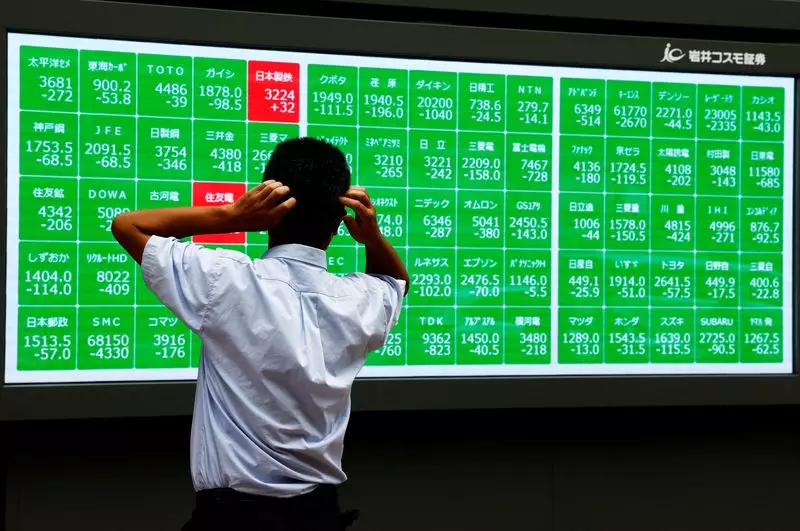As major share indices plunged deep into the red in Asia on Monday, it became increasingly evident that fears of a potential recession in the United States were triggering mass risk aversion among investors. This resulted in significant sell-offs and a sharp decline in market confidence. The prevailing sentiment indicated that interest rates would have to fall sharply and quickly in order to support economic growth and stabilize the volatile market conditions.
Market indices such as Nasdaq and S&P 500 experienced notable drops, with Nasdaq futures falling by 1.28% and S&P 500 futures declining by 0.79%. Similarly, Nikkei futures traded well below the previous cash close, reflecting a significant decrease in investor confidence. The downward trend extended to Treasury futures as well, following a substantial rally where yields plummeted to their lowest levels since November.
The weak July payrolls report intensified concerns about a potential recession, prompting markets to price in a high probability of rate cuts by the Federal Reserve. Analysts at Goldman Sachs raised their recession odds to 25% and predicted multiple quarter-point rate cuts in the coming months. The Federal Reserve could potentially ease rates by 50 basis points in response to poor economic indicators, such as the employment report.
The uncertainty in the market was reflected in the movements of major currencies, as investors sought safety in alternative assets. The U.S. dollar experienced a decline against the Japanese yen and the euro, while the Swiss franc emerged as a safe-haven currency during the turbulent market conditions. The shift in expected interest rate differentials highlighted the impact of market sentiment on currency valuations.
Expectations of major central banks following the Federal Reserve’s lead and implementing aggressive rate cuts raised concerns about global economic stability. The European Central Bank was anticipated to make significant cuts by Christmas, further adding to market uncertainties. In commodity markets, gold prices remained steady, supported by lower yields, while oil prices experienced volatility due to geopolitical tensions in the Middle East.
The prevailing fears of a potential recession in the United States and its impact on global markets have heightened market volatility and triggered mass risk aversion among investors. The responses of central banks and the movement of major currencies reflect the uncertainty and apprehension surrounding the economic outlook. As markets brace for further developments and potential policy responses, the need for stability and proactive measures to support economic growth becomes all the more crucial.

